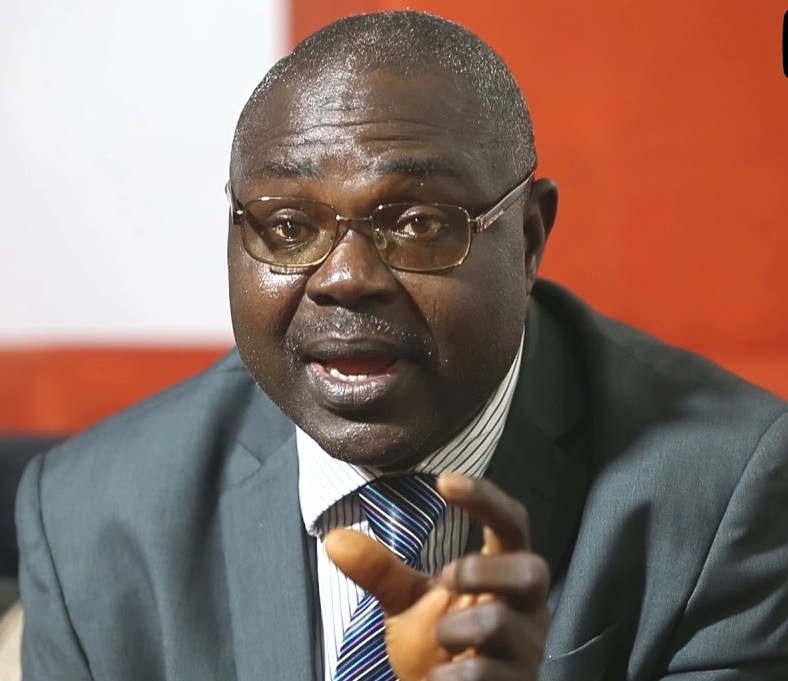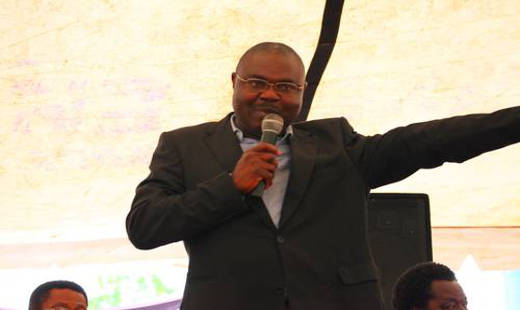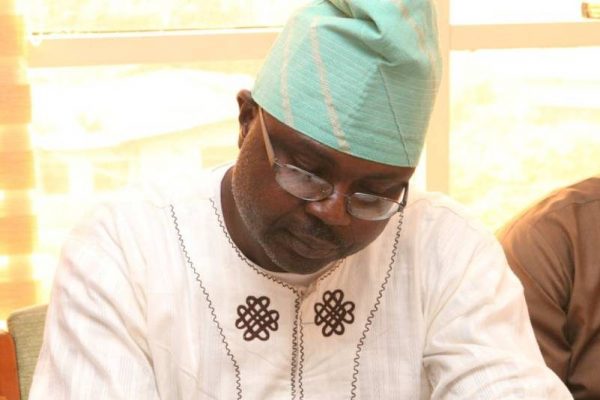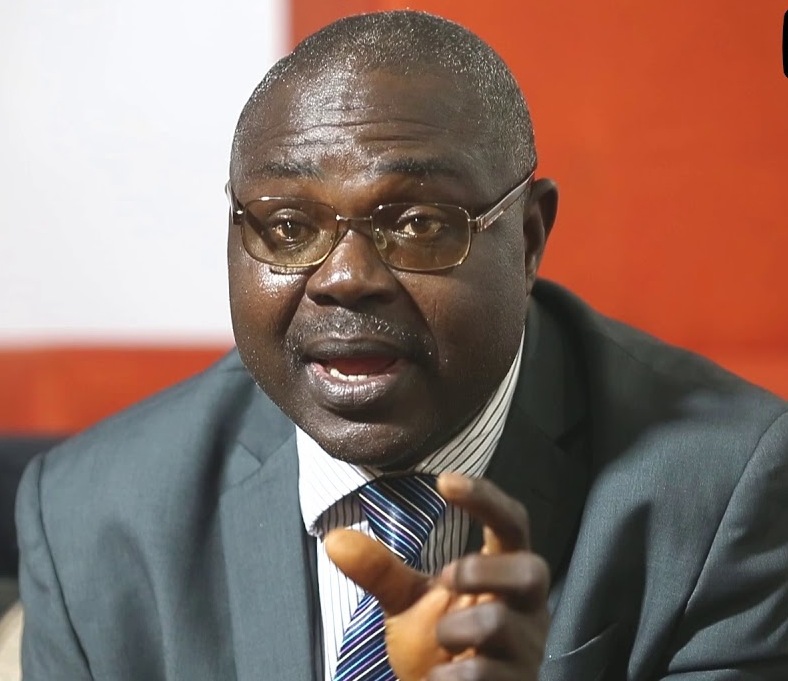I have what it takes to transform Edo State into beacon of pride- Sylvester Odion Akhaine

![]()

In the next 15 months or there about, there will be a change of government in Edo State. That is when the incumbent governor of the state, Godwin Obseki, will leave office after his second-term at the saddle. This, inevitably, has opened up a leadership contest for the soul of state. One of the key contenders for the coveted position is Sylvester Odion Akhaine, an internationally acclaimed intellectual and a Professor in the Department of Political Science of the Lagos State University. A true democrat, Akhaine was one of the frontline leaders of the prodemocracy movement in Nigeria. He was, at various times, the General Secretary of the Campaign for Democracy (CD) and the United Action for Democracy (UAC) in the thick of the antimilitary struggle. He was one of the few Nigerians who paid the ultimate price to ensure that democracy is entrenched in the country.
His mission, now, is to rescue the people of Edo State from years of neglect and degradation induced by misrule. Akhaine wants to give the people of Edo State a purposeful and visionary leadership which has been lacking in the state with a view to turning the state into a beacon of pride and a reference point in the country.
Hear him: “Edo State is in a period of transition in which one leadership will be handing over to another. So, a lot of people are expressing interests in competing for the gubernatorial seat next year. All run-up activities are already ongoing and people are expressing their view points, visions and others for the state. I think the problem in Nigeria is partly, I am not saying majorly, as Chinua Achebe has put it, leadership problem. You are talking about leaders who can actually, understand concerns and therefore able to provide solutions to problem of governance that daily confront our people. That is what leadership are all about but unfortunately, there are those who have skills, those who have the capacity, those who have the vision, have not had the opportunity to effect a change at the level of their respective states. And to go further, I think that is a challenge.

“People run away from leadership contest because the climate is not clement. People are afraid that they might get killed, it is too dirty and also the whole process is monetised . And so, you have a lot of forbidden red lines; a lot of forbidden areas and red lines that you don’t want to venture into politics. But what that has done is, you know, as Plato said: If you vacate the politics to other people you will be ruled by idiots. So, that is what has happened in the case of Nigeria. And I think that people like us who have been part of the struggle for democracy in this country need to intervene. Not because we know everything but because we understand the system and we have the political will to do so and provide concrete solutions to our problems locally within the state and of course thereby contributing to national developments and perception of our country.”
Let me start by asking you those who are calling you to come to their rescue. You said in one of your interviews that there have been outcries by people calling on you to come to come and rescue them. Who are they?
It is not time to start mentioning names. There are many prominent and progressive Edo elites that have called me to say: look, I think it is time for you to provide a leadership direction in our state and to that extent, I have heeded that call, and I am ready to carry that historical responsibility to lead my people in our state. As I have said, I don’t have all the solutions but I have a vision of what that state should be. Not just a vision of what that state should be but I also have what is called material praxis to set them going, to put a smile on their mouths.
What is this praxis that you want to put in for them to be smiling?
In politics, you don’t put all your cards in the open. But what I can tell you is that I have a two-point agenda, which is Transformation of Material Conditions of Our People and of course, the Ethical Revolution within the state because we need to reorientate our people because their values have been undermined. If you don’t combine that with concrete transformation of the material conditions of the people you will lose the battle and so, I have coined an acronym around that ME. It is just like saying You, or ME at that level. So those are the things. That two-point agenda, I just read out have so many components. Governance cannot be meaningful to people if you don’t create jobs. It is a major problem. You have to find a way to create jobs. Sometimes people refer to the state as civil service state. Which state in Nigeria is not a civil service state? This is so because we run a feeding bottle federalism; apologies to Ekweremadu on that point. We have so many things we can do at that level to create jobs. You cannot talk about governance when people are hungry. I grew up in a community that was self-sustaining, self-reliance, you know. We got our rice from the farm. My community Ekpoma used to be a rice producing community. But today, my community does not produce rice anymore. Ekpoma rice was famous in the old Mid-West and Bendel. It is not happening today. Those who produce other food crops, because there is no storage facilities there farm produce are wasted. So, people can’t even feed themselves. And these crop issues are aggravated by problems of insecurity. At the level of state, people are afraid to go to farms and the rest of them. So, we need to deal with these problems. Edo State was so prosperous in food production in the ‘80s because we had farm settlements. Those days, when you cook beans, you cook it with eggs, you know, because there was enough to eat and the rest of them. Today, people can’t feed. They can’t even afford the food. And we have arable lands for farming and Edo State records an average of 11 inches rainfall per annum, which means you can actually farm all through the year. Those are just a few points.

Are you talking about tourism? The Benin Empire is famous for its bronze and artworks. And we talk about those artefacts and we have not transformed them into a tourist economy. That is just one aspect of a tourist economy. I have a very holistic one. Ecotourism we combine with the artefacts we have in our state to unleash development because, you know, ecotourism alone in Africa is worth $2billion, per annum. Nigeria is not part of that game. Then, there are other things, in terms of revenue generation. Tourism industry runs into several millions of dollar per annum. I just mentioned one aspect, eco, which does not exist currently and these are some of the facilities that do not require huge capital to engender some of these things. It is just the vision to do so. And I have a clear blueprint of where we are going: community-driven development. People have to own development. You don’t have to go to people as if you are giving them largess. Let me do what I can do to improve the environment, enable them and all of that. So, these are some of the issues that I think, … I talked about the ethical aspect of it. That ethical aspect means that people should believe in themselves. People should not be engrossed in this ‘hammer’ mentality. They have to be involved in genuine productive activity to unleash development in the state. If we have that believe ,with a youthful population, we should be able to transform the economy of that state and put smile on the faces of our people.
Let me ask you this question. It has to do with revenue generation. Are you aware that Edo State is not very buoyant in terms of the money it gets from the Federal Government because it is not one of the big oil bearing states in the country? How will you generate revenues to execute these laudable ideas you have articulated? There has to be money for you to achieve all these.
Unfortunately, what people do is to rely on revenue allocations from the centre ; monthly allocations that is shared by the federating states. But I think one of the problems is also that the money that comes from the centre, you ask yourself: how well it is used? There are leakages in the system. You have to deal with that. I talked about other projects that do not require huge financial outlay. For instance, if there is one thing that I have done so well , it is that I have experimented with raising resources from the international environment outside the state. The nitty-gritty of that I cannot put on the table but I know projects that we can implement that will attract external grants. We will be able to do so. But beyond that , there are things we can do internally to also generate resources. For instance, I just talked about food crops. In agriculture, Lagos alone consumes about one million tonnes of rice per annum and they don’t produce that. That is market for us. It is a market for us because, we are closer to Lagos than Kebbi is. And fortunately, the fact that I schooled in Lagos also puts me in a very good position to relate very well with the Lagos State Government to establish that nexus. So, there are so many things I know that we can do to generate resources. All the food crops that are wasted on the daily basis because there are no storage facilities ,I will build silos. I don’t even want to go into the nitty-gritty because I already have them worked out. I have worked it out. It is not the case of you going into government and you are asking yourself what to do or you will be looking for somebody to craft your speech. I will craft my speech because I know what to do. I am only explaining it to our people to buy into it.
So, that is what I said in my two-point agenda: Transformation of Material Condition of our People and Unleashing an Ethical Revolution. Because, if people don’t believe in themselves they cannot do anything. You know, Marx said history moves irrespective of our will; men only intervene to give it a direction. So, that is exactly what I want to do.
You are from Edo Central Senatorial District. Prof Oserheimen Osunbor is also from the same zone and his in APC. I understand he is interested. There are others, but I mentioned Osunbor because he is a strong contender haven been a governor of the state before. There is another guy, the state chairman of the party, Col David Imuse (rtd). These are men of timber and caliber; are you sure you have the wherewithal to beat them in this contest?
Electioneering process is a competitive one and there are many competitors. Your ability to overcome other candidates depends on your ability to market your programmes and to win; you have to convince people in our constituency within the party to see the stuff you are made of. Right now, it is a market place but my people say that you can discern those who will carry the calabash to the river and return with water inside it. So, I can tell you that our people know the capacity of somebody like me. It is not in doubt. I am not just introducing myself. I have done things in the past that have put me, not just on the Nigerian landscape but also on the global map. I am a world renowned intellectual. So, I have so many things to bring to the table. I am not a local champion at all.
You see, a person from Edo Central has not governed the state for past 14 years or more. In fact, if Obaseki finishes his second term next year, Edo South shall have taken 16 years of the slot just as the Edo North has taken already 8 years. Obaseki and his deputy are at loggerhead, right now, over this. Because of this, which looks more like marginalization, people are saying that Edo Central should be given the chance to produce the next governor of the state. What is your take on this?
The squabble within the governing class in Edo is not my own problem. They are in power … I also believe that they have the capacity to settle themselves. If it has to do with succession to His Excellency Obaseki, I think that Edo people will decide who their next governor will be. So, at that point I am at one with the governor, and other elements will play out such as ensuring social justice in the state.
The justice you are talking about is that Edo South will also play along by supporting the political aspiration of the people from your zone?
I think that is the weight of the opinion. Across the three Senatorial Districts of the state, if you ask me, it is ensuring social justice by ensuring that power goes to the Central District. That sentiment is there but it does not mean that people from other districts are not rearing their heads. And that is why I said ultimately, the Edo people will decide who will be their next governor.
How would you assess the current democratic dispensation in the country since it started in 1999? I learned there is a rule which says that for a country to be said to have consolidated democracy, it must have maintained uninterrupted democracy for a minimum of 40 years. From your observation, are we approaching consolidation? In other words, are we meeting the conditions by which we can be said to be approaching democracy consolidation in our country?
There is no such benchmark. The benchmark that we have, even theory, is the one given by Samuel Huntington, which is called Two Turnover Test, which says that that happens when a government in power hands over power to a party in opposition and that party in opposition hands over power to another party in opposition. That is Two Turnover Test. Once you have passed that test you have consolidated democracy. With the advent of APC, Nigeria has past what is called One Turnover Test. Nigeria has not passed the Two Turnover Test yet. But by the time an opposition party takes over power from APC, Nigeria will attend Two Turnover Test.

But the other point about consolidation of democracy is that transition politics is not a strait jacket kind of thing. Because you are dealing with social issues that is full of several contradictions. What consolidates democracy is how the state actors or the managers of the state try to resolve those contradictions. That is it. David Runciman, who wrote The Confidence Trap: A History of Democracy in Crisis from World War I to the Present is an Oxford Professor. He said that democracy is full of contradictions but that the merit in it is that when you feel that everything is finished about that democracy, it bounces back. So, that is the way democracy works. But whereas that may be largely true of the old or the so-called advanced democracies, however, in the Third World, it is one of the endless transitions. We are talking about coup d’état everywhere. But the point I am making is that for all us who aspire to govern and those already governing is that there is no alternative to good governance. There is no alternative to improving the material conditions of the people. That is the only antidote against coup d’état because, if you read the American constitution, it says clearly well, I think they must have taken it from John Locke’s Second Treatise on Government. It says clearly well that people put in place a government to take care of their needs and when that government is no longer playing that role, it is shirking its responsibility. It is the inalienable right of the people to change that system. It is the preamble of the American Constitution till today. That is why when I hear people interpret the January 6, the so-called attempted coup in the U.S. I laugh. The people were merely expressing their autonomy and dissatisfaction over electoral process, irrespective of the views that people held about that election.
So, democracy can only be consolidated if we make the development of the people and their well-being the alpha and omega of public policy.




